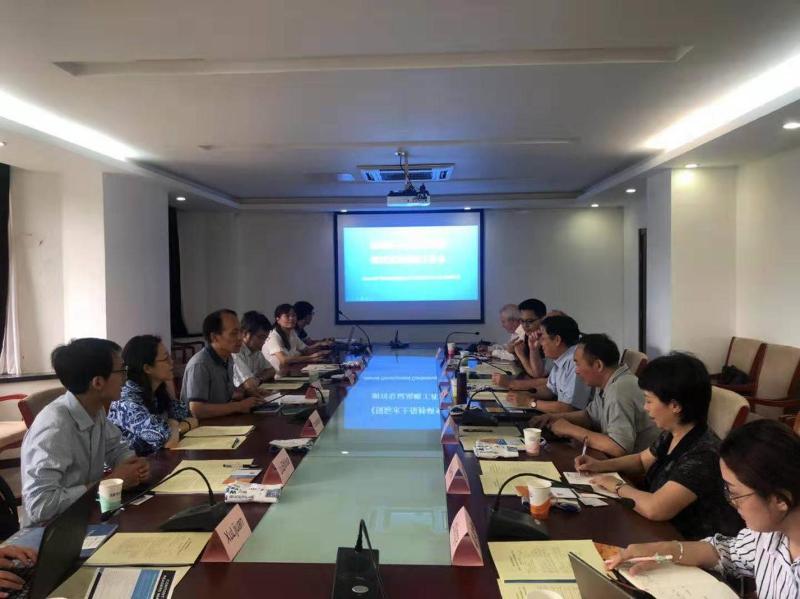On
June 28, 2019, the Symposium on Development Strategies of International Soil
and Water Conservation Research (ISWCR) was successfully held at the
International Research and Training Center on Erosion and Sedimentation (IRTCES),
chaired by Professor Tingwu Lei, Editor-in-Chief of ISWCR. Prof. Duihu Ning,
deputy director of the IRTCES, and also the Secretary-general of WASWAC, made a
welcome speech. The participants included Prof. LI Rui, the president of WASWAC,
Prof. Rubio Jose, the vice president of WASWAC, Prof. Zlatic Miodrag, the
immediate past president of WASWAC, Prof. LV Yonglong from the eco-environmental
research center of the Chinese Academy of Sciences, Prof. MA Aimei and Ms. XU
Lijuan, the director and deputy director of Publication and International
Cooperation of China Water and Power Press, Dr. QU Paige and Mr. ZHANG Tan from
the editorial board, Manager CHEN Xiangru from Keai Publication, and Manager DU
Yaowen from the Clarivate Analytics.
Dr.
Paige introduced the development of ISWCR in recent years and the procedures of
review for submitted manuscript, summarized the progresses since 2017, pointed
out the current challenges, and tried to provide strategies to resolve existent
problems. Prof. Mark Nearing, the Editor-in-Chief of ISWCR, gave an
introduction on editors’ work flow and current cite situation with a video
prepared for the conference, as he was unable to attend this occasion for busy
schedule. Prof. LV Yonglong shared his experience of establishing Ecosystem
Health and Sustainability and undertaking the associate editor, emphasized the
important roles of editorial board and calling for manuscript in journal’s development.
Managers CHEN Xiangru and DU Yaowen evaluated ISWCR’s position in various disciplines
based on its current situation and journal citation reports. Prof. Rubio Jose
and Prof. Zlatic Miodrag provided suggestions to accelerate the improvement of papers’
quality through collaboration with related academic institutes.
Prof.
MA Aimei and Prof. LI Rui expressed their appreciation to the attended participants
for their valuable and helpful suggestions to improve ISWCR’s quality. They believe
that ISWCR must be more influential while having more readers, more authors, and
more cooperation institutes in the near future.


